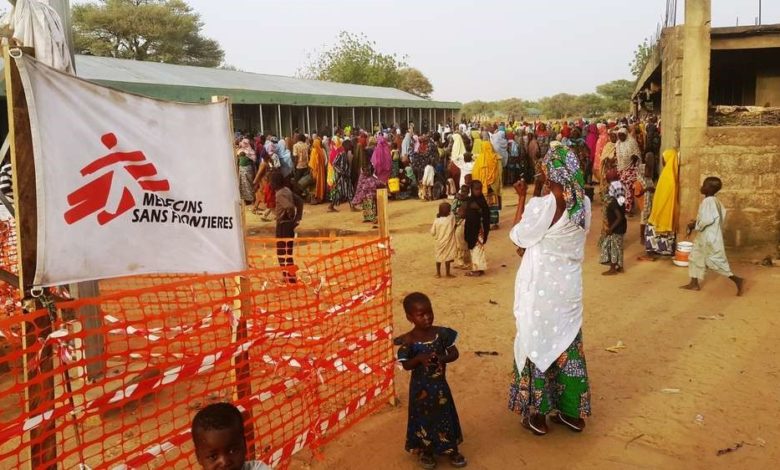Malaria: MSF Partners WHO To Save Children

Médecins Sans Frontières/Doctors Without Borders (MSF), an international organisation that provides medical assistance to people affected by conflict and disasters, has said it will be supporting the World Health Organization (WHO) with its seasonal malaria chemoprophylaxis (SMC) programme.
The programme, it said in a press release on Tuesday, is targeting two million children in Nigeria. The rainy season in the country causes a rapid increase in malaria transmission rates, thereby endangering millions of lives.
SMC is a preventive programme targeted at children between the ages of three months and five years, who are considered most vulnerable to the endemic disease.
MSF said its officials are participating in the second round of SMC in Borno State this week in order to treat children before they develop symptoms needing hospitalisation.
“All year round, MSF is treating patients with malaria in its healthcare facilities in Maiduguri, Gwoza, Pulka and Ngala. As for Rann, MSF is running 11 ‘malaria corners’ or ‘malaria points’ where people having malaria symptoms go for tests and those found with the disease are treated,” it said.
“In addition, this year during the peak period, MSF is providing support to the World Health Organization and local health authorities in the seasonal malaria chemoprophylaxis campaign.
“In Maiduguri, MSF teams provide logistic support as well as supervision in the administration of drugs provided by the WHO, in Gwange area and in more than 10 informal camps for internally displaced people (IDPs). More than 40,000 IDPs are taking refuge in these camps, which are not directly managed by the government and are often neglected by the aid system.”
It recalled that over 85,000 children from Borno State benefited from its SMC programme in 2019 and said it hopes to reach up to two million in 2020 by supporting the WHO.
“We are prepared for this anticipated surge in malaria cases,” said Dr. Blessing Ejawemokie, MSF medical team leader in Maiduguri.
“Preparations were made for blood donation because severe malaria if not timely treated can lead to critical anaemia, and children may need for blood transfusion. We have voluntary blood donors and patient’s relatives also donate blood.”
To prevent the further spread of the coronavirus, the organisation said it has put in place measures such as ensuring physical distancing during SMC campaigns, providing washing points, and administering drugs when needed.
“In Maiduguri, MSF provides also secondary health care to children affected by malaria with complications and treat them in its paediatric hospital in Gwange area. Since the beginning of the peak period in June, MSF has treated over 1,000 children in the hospital alone,” it said.
“In addition during this peak period, MSF outreach teams started visiting communities and IDP camps to conduct malaria test and treat on the spot those found to be with the disease. And they will refer severe cases that require hospitalisation to MSF hospital where they are provided with adequate care.
“From January to June, which means before the onset of the peak season, MSF has treated over 2,170 patients in its hospitals in Borno state. And 438 consultations were provided among IDPs and host community in Maiduguri via outreach mobile clinic teams.”
MSF also runs malaria programmes in Benue, where it has treated over 3000 patients between January and August, as well as Zamfara state.
According to the WHO, in 2018, Nigeria accounted for a quarter of all malaria cases in the world and nearly 24 per cent of deaths due to the disease.
Support Our Journalism
There are millions of ordinary people affected by conflict in Africa whose stories are missing in the mainstream media. HumAngle is determined to tell those challenging and under-reported stories, hoping that the people impacted by these conflicts will find the safety and security they deserve.
To ensure that we continue to provide public service coverage, we have a small favour to ask you. We want you to be part of our journalistic endeavour by contributing a token to us.
Your donation will further promote a robust, free, and independent media.
Donate HereStay Closer To The Stories That Matter




